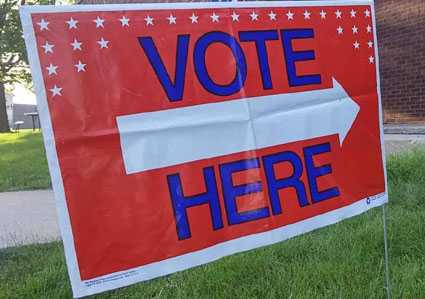FPI / February 3, 2020
By Judicial Watch
Judicial Watch announced that at least eight Iowa counties have voter registration rolls larger than their voting age population.
 According to Judicial Watch’s analysis of data released by the U.S. Election Assistance Commission (EAC) this year, these eight counties are on the list of 378 counties nationwide that have more voter registrations than citizens living there who are old enough to vote, i.e., counties where registration rates exceed 100 percent. These 378 counties combined had about 2.5 million registrations over the 100 percent-registered mark.
According to Judicial Watch’s analysis of data released by the U.S. Election Assistance Commission (EAC) this year, these eight counties are on the list of 378 counties nationwide that have more voter registrations than citizens living there who are old enough to vote, i.e., counties where registration rates exceed 100 percent. These 378 counties combined had about 2.5 million registrations over the 100 percent-registered mark.
In Iowa, there are least 18,658 “extra names” on the voting rolls in the eight counties at issue.
“Dirty voting rolls can mean dirty elections and Iowa needs to undertake a serious effort to address its voting rolls,” said Judicial Watch President Tom Fitton.
The Iowa counties are:
Dallas County, 114.8 percent registration rate, 80,864 population; Johnson County 107.9 percent registration rate, 144,425 population; Lyon County, 102.5 percent registration rate, 11,745 population; Madison County 102.5 percent registration rate, 15,720 population; Poweshiek County, 102.1 percent registration rate, 18,428 population; Dickinson County, 100.9 percent registration rate, 17,000 population; Scott County, 100.8 registration rate, 171,493 population; Warren County, 100.5 percent registration rate, 48,630 population.
Polk County, Iowa’s largest, also has an unusually high registration rate of 95.9 percent.
Under the National Voter Registration Act of 1993 (NVRA), Judicial Watch sent notice-of-violation letters to 19 large counties in five states (California, Pennsylvania, North Carolina, Virginia, and Colorado) that it intends to sue unless the jurisdictions take steps to comply with the law and remove ineligible voter registrations. Section 8 of the National Voter Registration Act requires jurisdictions to take reasonable efforts to remove ineligible registrations from its rolls.
In 2018, the Supreme Court upheld a massive voter roll clean up that resulted from a Judicial Watch settlement of a federal lawsuit with Ohio.
California also settled a similar lawsuit with Judicial Watch that last year began the process of removing up to 1.5 million “inactive” names from Los Angeles County voting rolls. Kentucky also began a cleanup of up to 250,00 names last year after it entered into a consent decree to end another Judicial Watch lawsuit.
Intelligence Brief __________ Replace The Media
